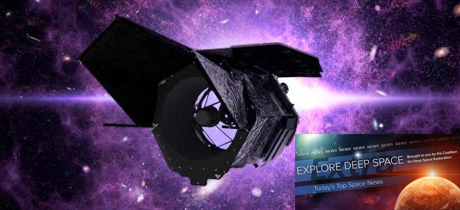In Today’s Deep Space Extra… The successful launch of the Demo-2 mission may not translate into the additional funding requested by NASA for 2021. The contributions of Nancy Grace Roman, for whom the next generation space telescope (WFIRST) is named, spanned decades. International contributions are key to the James Webb Space Telescope (JWST) program.
Human Space Exploration
Demo-2 launch wins political praise, but future funding uncertain
SpaceNews.com (6/1): The May 30 launch of the NASA/SpaceX Demo-2 test flight to the International Space Station (ISS) with astronauts Doug Hurley and Bob Behnken received bipartisan praise, including recognition from former Vice President Joe Biden, who appears to be the Democratic presidential nominee for 2020, it’s unclear how Congress will respond in the face of the coronavirus pandemic when it comes to funding NASA’s efforts to achieve a human return to the surface of the Moon in 2024.
NASA human spaceflight directorate reorganization on hold
SpaceNews.com (6/1): Plans to reorganize NASA’s Human Exploration and Operations Directorate have been placed on hold while the agency seeks a replacement for Doug Loverro, who resigned abruptly on May 19, after just five months as the directorate’s chief executive. The directorate oversees efforts to return human explorers to the surface of the Moon in 2024 and operations of the International Space Station (ISS). The hold on reorganization was discussed Monday by NASA Associate Administrator Steve Jurczyk during a webinar hosted by the American Institute of Aeronautics and Astronautics (AIAA). The agency’s goal is to have a replacement for Loverro within weeks, according to Jurczyk.
Space Science
‘Mother of Hubble’ honored as namesake of upcoming NASA space telescope
Astronomy (6/1): NASA will name the upcoming Wide Field Infrared Survey Telescope (WFIRST) after Nancy Grace Roman, the space agency’s first female executive and first chief of astronomy. The telescope, still under development, is expected to launch in the mid-2020s and will investigate the greatest scientific mysteries of our time, including dark energy and exoplanets.
NASA’s Webb Telescope is an international endeavor
NASA.gov (6/1): The James Webb Space Telescope (JWST) is an international endeavor with widespread global contributions and experts in more than a dozen countries dedicated to the build, launch, and future science of this flagship NASA space observatory. The cooperation and collaboration on Webb is an incredible testament to what is possible with worldwide teamwork.
How heavy is the universe? Conflicting answers hint at new physics
Space.com (6/1): A new study is raising questions about the overall mass of the universe. The significance of the discrepancy could grow if it bears any similarity to questions regarding the Hubble Constant, a measure of how quickly the expansion of the universe is accelerating.
Other News
L3Harris works to support Texas businesses, non-profits
Coalition Member in the News – L3Harris
Herald-Banner of Greenville, Texas (5/29): In order to help 30 small businesses in Texas, L3 Harris Technologies has made early payments to members of its supply chain as well as a $50,000 donation to United Way chapters in North Texas. In all, L3Harris plans to make more than $100 million in prepayments to its small business suppliers nationwide in order to fulfill its contracts with the Department of Defense and other government agencies.
Virgin Galactic stock soars following SpaceX success
CNN (6/1): Virgin Galactic, the suborbital human spaceflight company, saw a 6 percent rise in its stock price early Monday in the aftermath of the successful NASA Commercial Crew Program/SpaceX Demo-2 launch of two astronauts to the International Space Station (ISS). The company’s stock price has risen 60 percent since it went public in October. SpaceX is privately held.
Kazakhstan and Russia to build Baiterek space launch complex at Baikonur
Kazakh TV of Kazakhstan (6/2): Russia’s Baikonur Cosmodrome in Kazakhstan is to mark its 65th anniversary in October. The site for the launch of the first human into space and Soyuz crews to International Space Station (ISS) is to undergo further development by Russia and Kazakhstan with a new launch complex called Baiterek and other improvements.

